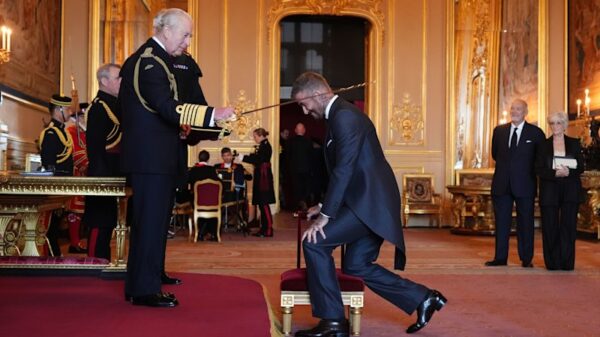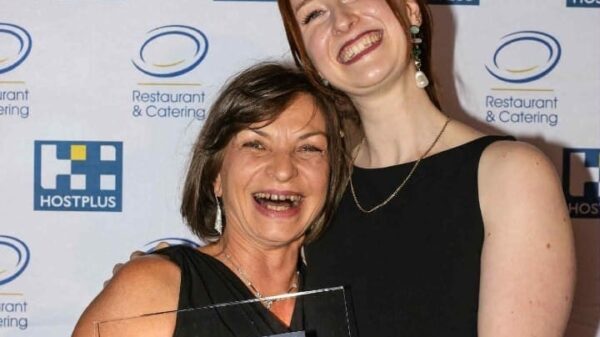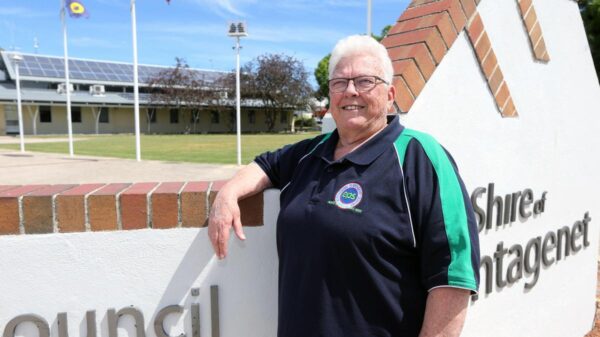The responsibilities of caring for aging parents often reshape familial relationships, particularly for those balancing young children and elderly relatives. In Australia, many individuals find themselves in the “sandwich generation,” where they are tasked with managing both childcare and eldercare. This situation can lead to significant strains on personal relationships.
Lauren Black, 42, from Albury-Wodonga, experienced this firsthand after the sudden death of her mother. At 35, while raising her toddler, she stepped into the roles her mother once held, assuming care for her father, their dogs, and her grandmother, who was beginning to show signs of dementia. The shift in responsibilities took a toll on her marriage to Matt. “I stepped into Mum’s place for my dad, and our relationship suffered,” she shared, emphasizing how the sudden increase in duties led to a lack of time for her husband.
The mental load of juggling multiple roles can be relentless. Dr. Michelle O’Shea, a senior lecturer at Western Sydney University, has been analyzing data on sandwich carers provided by Carers NSW. She notes that caregivers often express that the cognitive demand of managing care responsibilities consumes significant time and energy. “Respondents consistently talked about this idea of care taking up such a large part of their time,” Dr. O’Shea explained. The physical toll can also be exhausting, as caregivers often handle tasks for both their elderly relatives and their own households.
The emotional strain can lead to couples feeling disconnected. Lauren described how her decision to return to her hometown created barriers in her relationship. “I was his person in Albury, but I wasn’t available. We didn’t have any time together,” she reflected. This lack of quality time can hinder couples from nurturing their relationship, which is essential for maintaining a healthy partnership.
Dr. Queenie Wu, a clinical psychologist based in Brisbane, affirmed that being part of the sandwich generation can drive communication breakdowns and resentment over caregiving responsibilities. “Clients talk about going from lovers to logistic managers without realizing it,” she said. She highlighted the importance of couples prioritizing time together and maintaining open lines of communication to navigate these challenges.
The dynamics of caregiving often fall along gender lines, with women typically shouldering the majority of the responsibilities. Lauren noted that while she struggled, her husband also faced challenges but found it difficult to connect with others to share those burdens. “It’s a gendered issue,” she pointed out, revealing how societal expectations can complicate the caregiving landscape.
Cultural factors also play a significant role. Dr. Wu mentioned that many Australians of diverse backgrounds often feel a strong obligation to care for aging parents, which can add layers of stress. “For many Chinese Australians, it’s not just an expectation, but a fundamental responsibility ingrained from childhood,” she explained. This expectation can create additional pressures and emotional demands on caregivers.
As the aged care sector undergoes reforms, the informal responsibilities of caregivers like Lauren remain challenging. Dr. O’Shea noted that even when multiple siblings are involved in caregiving, the primary burden often falls on daughters or daughters-in-law. The realities of balancing work, caregiving, and personal life can be overwhelming, particularly for women who are now also part of the workforce.
To navigate the complexities of caregiving, experts recommend that couples actively acknowledge and validate each other’s efforts. Dr. Wu emphasized the need for couples to treat time together as essential, akin to a medical appointment. “We need to make it happen — treat it as sacred,” she stated. Regular communication and check-ins can help couples remain connected during challenging times.
For Lauren, life is gradually becoming more manageable as she finds a balance. Her career is stabilizing, her father has a new partner, and her brother is independently managing the family business. Yet, she acknowledges the lasting impact of their experiences. “I still feel like we are living through the most hectic times in our lives,” she concluded, highlighting the ongoing challenges faced by those in the sandwich generation.
As more individuals navigate similar circumstances, understanding the emotional and relational toll of such responsibilities can foster stronger support systems for families, ensuring that both caregivers and their partners find ways to preserve their relationships amidst the chaos.



































































